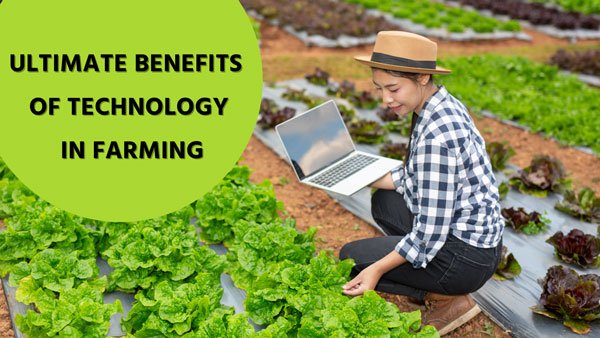The Growing Impact of Agri-Tech Revolution
The agriculture sector is experiencing a transformational journey through the Agri-Tech Revolution. Technology has become an integral part of modern farming practices, offering a plethora of benefits that revolutionize the way we grow, harvest, and produce food. Let’s explore the remarkable ways technology is shaping the agriculture sector.
Smart Farming: Embracing Technology for Efficiency
Smart Farming practices leverage technology to streamline and optimize various farming processes. From automated irrigation systems to data-driven decision-making, technology empowers farmers to enhance productivity and efficiency. Embrace Smart Farming and witness the ultimate benefits it offers to your farm.
AI in Agriculture: Transforming Farming Practices
Artificial Intelligence (AI) is a game-changer in the agriculture sector. AI-powered algorithms analyze vast amounts of data to predict weather patterns, optimize irrigation schedules, and detect crop diseases. Embrace AI applications in agriculture to make informed decisions and transform your farming practices.
The IoT Farming Revolution: Connecting Fields, Connecting People
The Internet of Things (IoT) is revolutionizing farming by connecting fields and farmers like never before. IoT devices and sensors monitor soil conditions, crop health, and equipment performance, providing real-time data to improve farming operations. Join the IoT farming revolution and be at the forefront of agricultural innovation.
Precision Agriculture: Nurturing Crops with Precision
Precision Agriculture techniques involve precise and data-driven crop management. By utilizing technologies like GPS and drones, farmers can apply resources such as water, fertilizers, and pesticides with accuracy, reducing waste and environmental impact. Embrace precision agriculture to optimize crop production and resource utilization.
Genetic Agriculture: Genetic Diversity in Agriculture
This technology allows farmers to create crops that are resistant to pests and diseases, or that produce higher yields. For example, the Bt corn crop is genetically engineered to produce a protein that is toxic to certain pests. This has helped to reduce the use of pesticides on corn crops.
Robotics Agriculture: Transforms Farming Operations
Robots are increasingly being used in agriculture for tasks such as planting, harvesting, and milking. This can help to reduce labor costs and improve efficiency. For example, a study by the University of California, Davis found that robots can harvest strawberries more efficiently than human workers.
Sustainable Farming: Sowing the Seeds of a Greener Tomorrow
Sustainable farming practices focus on eco-friendly and resource-efficient methods. By adopting sustainable techniques, farmers contribute to environmental conservation and ensure a long-term, healthy farming ecosystem. Embrace sustainable farming to sow the seeds of a greener and more sustainable tomorrow.
Live Examples with Statistical Data
- A study by the World Bank found that the use of agricultural technology can increase crop yields by up to 20%.
- The Food and Agriculture Organization of the United Nations (FAO) estimates that the use of agricultural technology could help to reduce global hunger by up to 100 million people by 2030.
- The United States Department of Agriculture (USDA) estimates that the use of precision agriculture could save farmers up to $15 billion per year.
Vertical Farming in Urban Settings
Vertical farming, leveraging technology like hydroponics and LED lighting, allows crops to be grown in stacked layers, maximizing space utilization in urban environments. Statistical data shows that vertical farming can increase crop production by up to 70% compared to traditional farming methods while using 90% less water.
AI-Powered Pest Control
AI-based pest control systems analyze vast amounts of data to identify pest behavior patterns and deploy targeted measures. A case study revealed that farms using AI-powered pest control reduced chemical pesticide use by 70%, leading to significant cost savings and environmental benefits.
IoT-Enabled Livestock Management
IoT devices for livestock management monitor animal health and behavior, helping farmers detect illness early and provide timely medical attention. Farms implementing IoT solutions experienced a 30% reduction in animal mortality rates, positively impacting profitability.
Sustainable Irrigation with Sensor Networks
Sensor networks that monitor soil moisture and weather conditions enable precise irrigation, reducing water wastage. Farms adopting smart irrigation systems saw a 50% decrease in water usage while maintaining or even improving crop yields.
AI-Driven Crop Disease Detection
AI algorithms analyze images of crop leaves to detect diseases with high accuracy. A study reported that AI-powered disease detection systems identified plant diseases with a 98% success rate, preventing massive crop losses and minimizing the need for chemical treatments.

